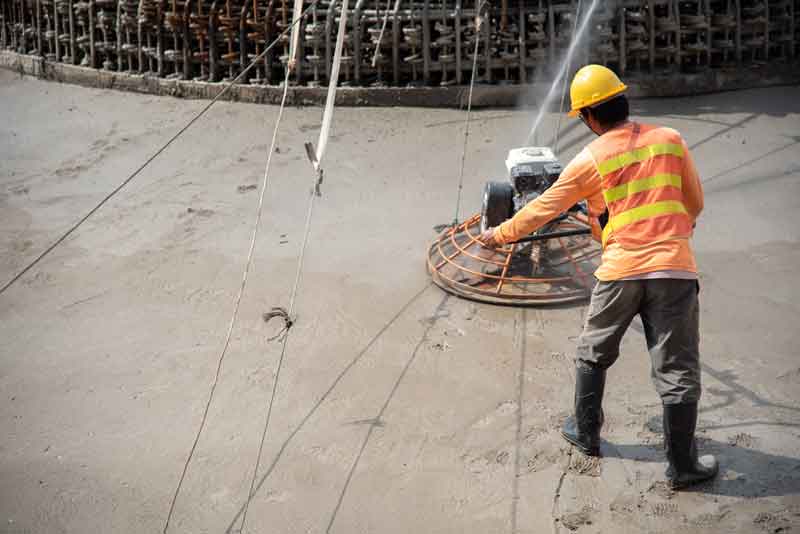
Concrete has been the backbone of construction for centuries, with Portland cement-based concrete as the industry standard. However, geopolymer concrete has emerged as a high-performance and low carbon alternative that is sustainable and cost-competitive.
In this article, we compare geopolymer concrete and portland concrete. We focus on their composition, environmental impact, curing time, durability, cost, and more.
Comparison of Portland Cement-Based and Geopolymer Concrete
| Aspect | Portland Cement-Based Concrete | Geopolymer Concrete |
| Composition | Made by combining portland cement, water, and aggregates (sand and gravel). | Uses industrial byproducts such as fly ash or slag as binders, activated with alkaline solutions. |
| Environmental Impact | High carbon footprint due to CO2 emissions during cement production. | Low carbon emissions; mitigates harmful pollutants like fly ash and red mud. |
| Curing Time | Takes weeks to achieve full strength. | Achieves full strength in days, enabling faster project turnaround. |
| Durability | Proven performance but prone to chemical attacks and extreme heat over time. | Ultra-high durability, with excellent resistance to high temperatures and corrosive chemicals. |
| Cost | Initially lower cost but higher lifetime maintenance expenses. | Cost-competitive due to rapid curing, production readiness, and lower lifetime maintenance costs. |
| Availability | Widely available. | Becoming more widely available as demand for portland cement alternatives grows. |
| Maintenance | Higher lifetime maintenance costs due to vulnerabilities. | Lower lifetime maintenance costs due to superior durability. |
| Ideal Applications | General-purpose construction, residential buildings, and cost-sensitive projects. | Industrial facilities requiring heat and chemical resistance, sustainable infrastructure, and projects requiring rapid construction using ultra high performance concrete materials. |
Geopolymer concrete is revolutionizing the construction industry by providing a sustainable, low carbon alternative to traditional portland cement. With its high performance capabilities, it addresses the growing demand for durable, eco-friendly building materials. By embracing geopolymer cement, builders and developers can reduce environmental impact while delivering superior performance and cost savings. Geopolymer concrete is not just a portland cement alternative—it’s the future of construction.
Want to learn more about geopolymer cement? Contact us!

 [Fireproofing Case Study] Cost-Effective Fireproofing Solution for an Oil & Gas Company in West Texas
[Fireproofing Case Study] Cost-Effective Fireproofing Solution for an Oil & Gas Company in West Texas